第11章 AS IT MIGHT BE MADE(1)
The supporters of Sabbath Bills, and more especially the extreme class of Dissenters, lay great stress upon the declarations occasionally made by criminals from the condemned cell or the scaffold, that to Sabbath-breaking they attribute their first deviation from the path of rectitude; and they point to these statements, as an incontestable proof of the evil consequences which await a departure from that strict and rigid observance of the Sabbath, which they uphold.I cannot help thinking that in this, as in almost every other respect connected with the subject, there is a considerable degree of cant, and a very great deal of wilful blindness.If a man be viciously disposed - and with very few exceptions, not a man dies by the executioner's hands, who has not been in one way or other a most abandoned and profligate character for many years - if a man be viciously disposed, there is no doubt that he will turn his Sunday to bad account, that he will take advantage of it, to dissipate with other bad characters as vile as himself; and that in this way, he may trace his first yielding to temptation, possibly his first commission of crime, to an infringement of the Sabbath.But this would be an argument against any holiday at all.If his holiday had been Wednesday instead of Sunday, and he had devoted it to the same improper uses, it would have been productive of the same results.It is too much to judge of the character of a whole people, by the confessions of the very worst members of society.It is not fair, to cry down things which are harmless in themselves, because evil-disposed men may turn them to bad account.Who ever thought of deprecating the teaching poor people to write, because some porter in a warehouse had committed forgery? Or into what man's head did it ever enter, to prevent the crowding of churches, because it afforded a temptation for the picking of pockets?
When the Book of Sports, for allowing the peasantry of England to divert themselves with certain games in the open air, on Sundays, after evening service, was published by Charles the First, it is needless to say the English people were comparatively rude and uncivilised.And yet it is extraordinary to how few excesses it gave rise, even in that day, when men's minds were not enlightened, or their passions moderated, by the influence of education and refinement.That some excesses were committed through its means, in the remoter parts of the country, and that it was discontinued in those places, in consequence, cannot be denied: but generally speaking, there is no proof whatever on record, of its having had any tendency to increase crime, or to lower the character of the people.
The Puritans of that time, were as much opposed to harmless recreations and healthful amusements as those of the present day, and it is amusing to observe that each in their generation, advance precisely the same description of arguments.In the British Museum, there is a curious pamphlet got up by the Agnews of Charles's time, entitled 'A Divine Tragedie lately acted, or a Collection of sundry memorable examples of God's Judgements upon Sabbath Breakers, and other like Libertines in their unlawful Sports, happening within the realme of England, in the compass only of two yeares last past, since the Booke (of Sports) was published, worthy to be knowne and considered of all men, especially such who are guilty of the sinne, or archpatrons thereof.' This amusing document, contains some fifty or sixty veritable accounts of balls of fire that fell into churchyards and upset the sporters, and sporters that quarrelled, and upset one another, and so forth: and among them is one anecdote containing an example of a rather different kind, which I cannot resist the temptation of quoting, as strongly illustrative of the fact, that this blinking of the question has not even the recommendation of novelty.
'A woman about Northampton, the same day that she heard the booke for sports read, went immediately, and having 3.pence in her purse, hired a fellow to goe to the next towne to fetch a Minstrell, who coming, she with others fell a dauncing, which continued within night; at which time shee was got with child, which at the birth shee murthering, was detected and apprehended, and being converted before the justice, shee confessed it, and withal told the occasion of it, saying it was her falling to sport on the Sabbath, upon the reading of the Booke, so as for this treble sinfull act, her presumptuous profaning of the Sabbath, wh.
brought her adultory and that murther.Shee was according to the Law both of God and man, put to death.Much sinne and misery followeth upon Sabbath-breaking.'
It is needless to say, that if the young lady near Northampton had 'fallen to sport' of such a dangerous description, on any other day but Sunday, the first result would probably have been the same: it never having been distinctly shown that Sunday is more favourable to the propagation of the human race than any other day in the week.The second result - the murder of the child - does not speak very highly for the amiability of her natural disposition; and the whole story, supposing it to have had any foundation at all, is about as much chargeable upon the Book of Sports, as upon the Book of Kings.Such 'sports' have taken place in Dissenting Chapels before now; but religion has never been blamed in consequence; nor has it been proposed to shut up the chapels on that account.
The question, then, very fairly arises, whether we have any reason to suppose that allowing games in the open air on Sundays, or even providing the means of amusement for the humbler classes of society on that day, would be hurtful and injurious to the character and morals of the people.